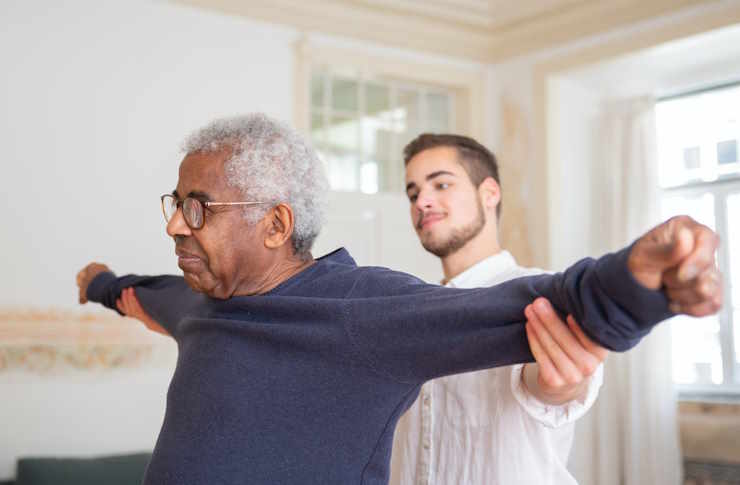Elderly Home Care Services and Support Options
Elderly home care services include assistance with daily activities such as bathing, dressing, meal preparation, and medication reminders. These services may be offered through personal caregivers, agencies, or community programs, depending on the level of support needed at home.

As the population ages, many families find themselves seeking assistance to care for their elderly loved ones. Elderly home care services provide a vital solution, enabling seniors to maintain their independence while receiving necessary support in the comfort of their own homes. This comprehensive guide explores the various options available for elderly home care, from private caregivers to community programs, and helps you understand how to choose the best care solution for your family’s needs.
What are elderly home care services?
Elderly home care services encompass a wide range of support options designed to help seniors maintain their quality of life while living at home. These services can include assistance with daily activities such as bathing, dressing, and meal preparation, as well as more specialized care like medication management and physical therapy. Home care services can be tailored to meet the unique needs of each individual, providing anything from a few hours of companionship per week to round-the-clock medical supervision.
How do private caregivers differ from agency-provided care?
Private caregivers, also known as private sitters for the elderly, are individuals hired directly by families to provide personalized care. These caregivers often develop close relationships with their clients and can offer more flexible scheduling. On the other hand, agency-provided care involves working with a professional organization that employs and manages caregivers. Agencies typically handle background checks, training, and scheduling, which can provide peace of mind for families. Both options have their advantages, and the choice often depends on the level of care needed and the family’s preferences.
What types of services are included in home care for the elderly?
Home care for the elderly can include a wide array of services to support seniors’ daily lives. Common services include:
-
Personal care: Assistance with bathing, grooming, and dressing
-
Meal planning and preparation
-
Light housekeeping and laundry
-
Medication reminders and management
-
Transportation to appointments and social activities
-
Companionship and social engagement
-
Physical therapy and exercise assistance
-
Skilled nursing care for medical needs
The specific services provided can be customized based on the individual’s needs and the level of care required.
How can families determine the right level of care for their loved ones?
Determining the appropriate level of care for an elderly family member involves assessing their physical, emotional, and cognitive needs. Start by consulting with their primary care physician to understand any medical requirements. Consider the senior’s ability to perform daily activities independently and their safety at home. It’s also important to take into account their social needs and desire for independence. Many families find it helpful to work with a geriatric care manager or social worker to conduct a comprehensive assessment and develop a care plan that addresses all aspects of the senior’s well-being.
What are the benefits of private elderly care over institutional options?
Private elderly care offers numerous advantages over institutional care settings like nursing homes. One of the most significant benefits is the ability for seniors to remain in their familiar home environment, which can contribute to better emotional well-being and cognitive function. Private care also allows for more personalized attention and a higher caregiver-to-client ratio. This individualized approach can lead to better health outcomes and a higher quality of life. Additionally, private care offers greater flexibility in terms of scheduling and customizing services to meet specific needs and preferences.
How much do elderly home care services typically cost?
The cost of elderly home care services can vary widely depending on the level of care needed, the geographic location, and whether you choose private caregivers or agency-provided care. Here’s a general overview of cost estimates for different types of home care services:
| Service Type | Provider | Cost Estimation (per hour) |
|---|---|---|
| Basic Companionship | Private Caregiver | $15 - $25 |
| Personal Care Assistance | Home Care Agency | $20 - $30 |
| Skilled Nursing Care | Home Health Agency | $40 - $80 |
| 24/7 Live-In Care | Private or Agency | $200 - $350 (daily rate) |
Prices, rates, or cost estimates mentioned in this article are based on the latest available information but may change over time. Independent research is advised before making financial decisions.
It’s important to note that costs can be significantly higher in urban areas or for specialized care needs. Many families use a combination of private pay, long-term care insurance, and government programs like Medicaid to cover the expenses of home care. Some communities also offer sliding scale fees based on income for certain services.
When considering the cost of home care, it’s crucial to compare it with the expenses associated with assisted living facilities or nursing homes, which can often be more expensive. Additionally, explore local resources and support programs that may offer subsidized or low-cost services to help offset the financial burden of elderly care.
In conclusion, elderly home care services provide a valuable option for seniors who wish to age in place while receiving the support they need. By understanding the various types of services available, assessing individual needs, and carefully considering the costs and benefits, families can make informed decisions about the best care solutions for their loved ones. As the demand for elderly care continues to grow, it’s likely that we’ll see even more innovative and personalized home care options emerge in the future.
The shared information of this article is up-to-date as of the publishing date. For more up-to-date information, please conduct your own research.




